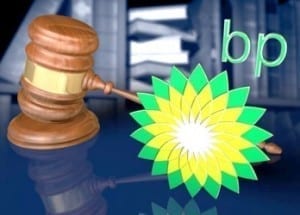7/3/2015

In a joint press conference, the attorneys general for Alabama, Florida, Louisiana, and Mississippi announced that it has agreed to settle the penalty phase regarding the Deepwater Horizon oil spill. The spill occurred on April 20th, 2010, when the aforementioned oil rig caught fire, killing 11 people and sent over 3 million barrels of oil spewing into the Gulf for 89 days. The rig sank two days later roughly 45 miles off of the Louisiana coast. The penalties total out to roughly $18.7 billion to be paid out over a 16-year period. The settlement comes after a last-ditch effort to dispute the case was rejected by the Supreme Court on Monday. The negotiations intensified after U.S. District Judge Carl Barbier ruled in September that BP was found to be grossly negligent for the disaster, subjecting them up to a $13.7 billion in fines under the Clean Water Act. In the agreed-upon settlement, however, both parties agreed to a $5.5 billion fine, which is still the largest pollution fine in U.S. history, with the rest of the penalty going towards state and federal environmental cleanup efforts. The agreement will still have to be finalized by Barbier and subjected to a commenting period before becoming official.
In a press release, BP Chairman Carl-Henric Svanberg said, “In deciding to follow this path, the Board has balanced the risks, timing and consequences associated with many years of litigation against its wish for the company to be able to set a clear course for the future.” The Wall Street Journal’s Daniel Gilbert notes that despite the whopping penalty, investors prefer the certainty of the settlement, especially given that the payment will be made in annual installments, over the unclear future of the negotiating process. Regardless, the amount of the penalty exceeds all of BP’s profits since 2012. The state of Louisiana will receive the largest portion of the settlement, over $6.8 billion, including $5 billion for natural resource damage and $1 billion for economic damage. Louisiana Attorney General, Buddy Caldwell said in the press conference, “Today’s settlement is a game changer for Louisiana and its families. Nothing can bring back the lives those 11 lives lost tragically April 20, 2010. But with new technology and innovation, perhaps we can prevent any further loss of life and protect our planet while we’re at it.” Svanberg was also forward-thinking in his statement, saying “We have made significant progress, and with this agreement we provide a path to closure for BP and the Gulf. It resolves the company’s largest remaining legal exposures, provides clarity on costs and creates certainty of payment for all parties involved.”
Although the penalty phase of the lawsuit will be settled pending Judge Barbier’s approval, Svanberg and BP will have more issues to resolve in order to bring full closure to the Gulf disaster. Although the 2012 settlement and the government’s regulatory case against the company have been BP’s two largest legal disputes, it is still facing roughly 3,000 lawsuits worldwide including investor lawsuits. In addition to the federal and state penalties, BP has paid out roughly $5.3 billion so far in civil settlements to 66,000 claimants with BP analysts predicting an eventual total of $10.3 billion according to its first quarterly report of 2015. BP closed its multiple claims centers last month, with thousands of claimants rushing to meet the June 18th deadline. Although the ordeal is still likely years away from being completely resolved, the settlement is another indicator of a sense of normalcy slowly returning to the Gulf region. Nearly 5 years from the date of the disaster, Louisiana-based LLOG Exploration was granted a permit to drill in the Macando Reservoir, a 5,800 acre oil-rich region in the Gulf where the spill occurred. BP still maintains the 270-acre perimeter in the area where the sunken Deepwater Horizon remains out of respect for those killed and in case additional research or cleanup is needed. In his statement, Svanberg touted his company’s work to fix the disaster saying, “Five years ago we committed to restore the Gulf economy and environment and we have worked ever since to deliver on that promise.”
Sources:
Reuters – Terry Wade and Kristen Hays
The Times Picayune – Mark Schleifstein
Wall Street Journal (blog) – Daniel Gilbert


Join the conversation!